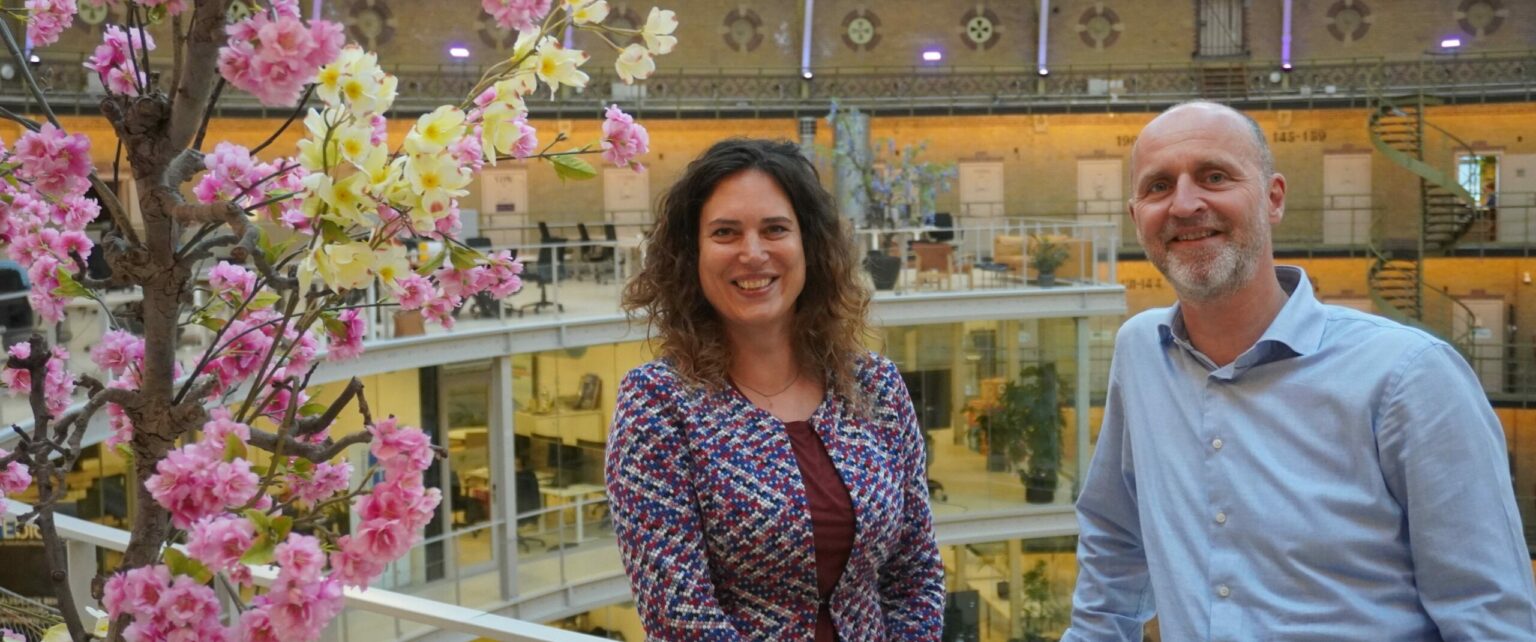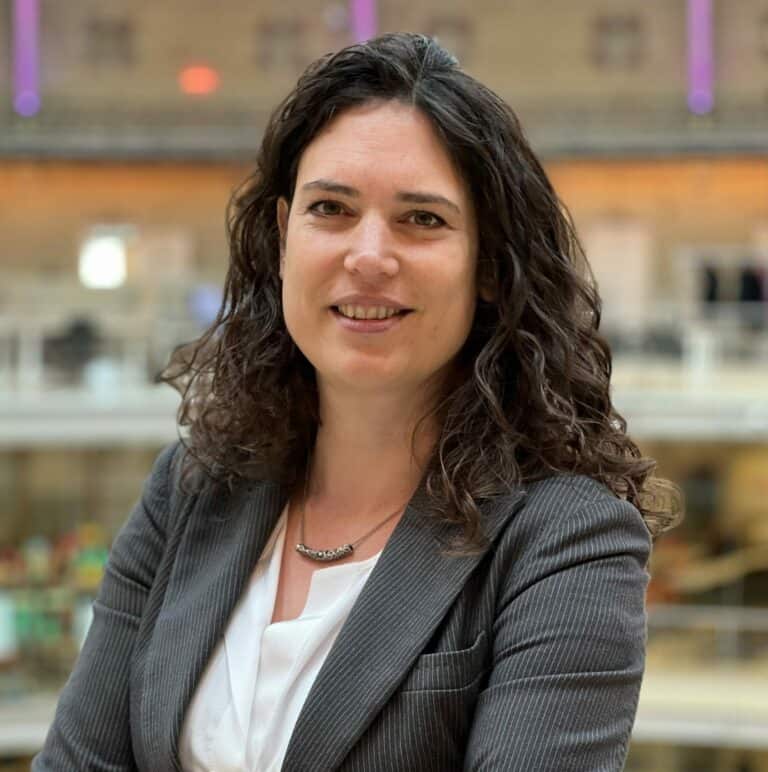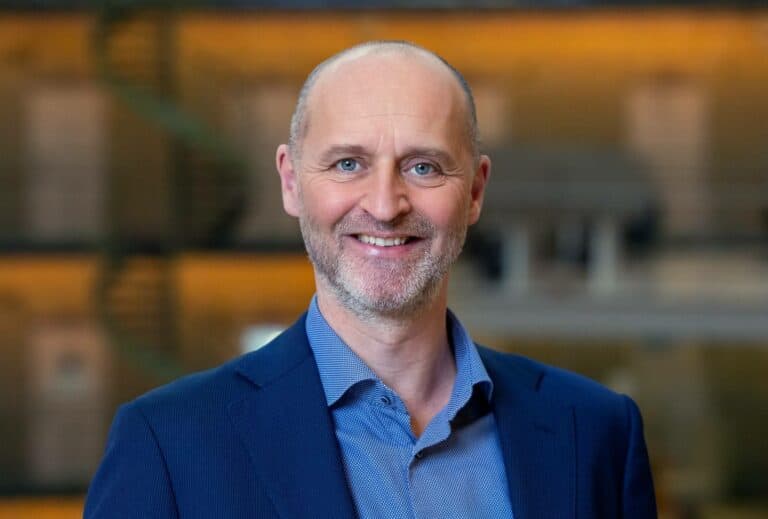According to Linze, it is an understatement to say that North Holland has little shortage of LSH knowledge. “Research shows that we are globally distinctive in this respect and can compete with Cambridge and Boston. Major well-known knowledge centres such as the Netherlands Cancer Institute, the Netherlands Brain Institute, Sanquin, the UvA, VU and the Amsterdam UMC – the largest academic hospital in the Netherlands – together produce numerous publications and patents. The knowledge here is of a very high level.”
Digital practice solutions
According to Linze, healthcare innovations are already proving their worth in various places in North Holland. “Just look at Ksyos, the largest digital hospital in the Netherlands. Their approach to care is built on a digital strategy. Patients are referred to them, but do not always have to go there physically. Syntilio, a platform for personal emergency care for the elderly, uses the power of AI to organize that specific care much more efficiently. Kepler Vision, one of the entrepreneurs in which ROM InWest invests, developed a fall detection system for more efficient elderly care.” All these innovations contribute to faster and better care.
AI frontrunner
According to Sara, the region is a global leader in the field of artificial intelligence, both in terms of knowledge and in terms of startups that work with it. “Drawing on all the available AI knowledge, many North Holland entrepreneurs have developed groundbreaking healthcare solutions. In addition to the aforementioned Syntilio, think of Cradle and Incircular, companies that design or stabilize proteins using AI. AI also offers a lot of potential for visual applications such as CT, MRI scans and X-ray photography. Confocal en Ellogon kwamen met behulp van AI – én dankzij investeringen van ROM InWest – tot oplossingen voor beter en gerichter microscopisch onderzoek in de LSH. Je ziet dus waartoe ondernemers in onze regio in staat zijn qua AI-innovaties voor de zorg.”
Plenty of locations
Sara calls the five large 'hubs' for innovative healthcare start-ups in the North Holland region extra attractive for entrepreneurs. "You might not think so in this heavily built-up area, but there is still plenty of space for innovative entrepreneurs. The Amsterdam Science Park in Amsterdam East, the Amsterdam Life Sciences District in South East, the Health & Innovation District (HiD) in Slotervaart and the Energy & Health campus in Petten are ideal places for young LSH start-ups to establish themselves. There is also a new incubator under construction at the Zuidas Innovation District. As an entrepreneur, you are literally sitting next to the knowledge parties and facilities on which your solution is based."
Social necessity
According to Linze, making better use of all that entrepreneurial potential within LSH is not only an economic opportunity, but also a rock-solid social necessity. “More and more figures about healthcare in our country show that healthcare is becoming increasingly expensive and incredibly hard on staff as a result of the rapid ageing of the population. Insurers even predict unsustainable healthcare costs if we do not quickly start organising things differently, resulting in even greater inequality in access to healthcare. The conclusion that healthcare costs would be twice as high in 2040 as in 2020 and a quarter of the working population would have to work in healthcare if we continue on the current path is telling. The latter is actually not possible. Healthcare must therefore become smarter and more efficient.”
Lack of funding
According to Sara, the fact that many innovative LSH startups are still struggling to get started in the region is due to various challenges they are struggling with. “To start with, there is still a big gap in the available growth financing for startups. Parties such as ROM InWest and Innovatiefonds Noord-Holland are investing more and more in the LSH domain, but all together it is often still too little for entrepreneurs to finance the expensive development phase of their healthcare innovation. Applications in LSH not only require extensive and expensive research, but also careful safety and quality control and validation. Due to all those extra steps and long time to market, the costs are much higher than for 'average' digital innovations. As a region, we must therefore offer even more in this regard.”
Fragmented network
Linze adds that the network of investors, knowledge institutions and other parties in Amsterdam and North Holland is relatively fragmented. “It is precisely because of the enormous supply of such parties that many starting entrepreneurs, ironically enough, no longer see where they can go for what help. This problem is increasingly being recognized, and we are working hard to jointly become more recognizable and accessible, for example as a point of contact for (inter)national commercial VC investors.”
More appreciation for entrepreneurship
According to Linze, hospitals and knowledge institutions also need to change. “There really needs to be more appreciation for collaboration with companies in general and specifically for the solutions that start-up entrepreneurs develop. There is still a kind of blind spot here. You can see how healthcare can indeed benefit from entrepreneurship, for example at AtMoves, which uses AI to prevent unnecessary hip and knee operations. So collaboration is already happening, but far too little.”
Initiatives
With various 'services' and initiatives, ROM InWest tries to stimulate entrepreneurship within LSH. Sara: "Apart from investments that we can make ourselves, we have a good picture of all other parties in our region that invest in healthcare innovations. We can therefore advise start-ups that come to us in a targeted and relatively quick manner on obtaining financing for their company. We also offer an analysis of the necessary steps for their market validation. In this way, we can help every innovative entrepreneur."
LSH Capital Match
On Thursday afternoon, November 28, ROM InWest, together with network partners in the Health & Innovation District Amsterdam (HID), is organizing the second edition of LSH Capital Match, where they will bring together some 150 investors and startups. Sara: “This way, we are building the healthcare innovations of tomorrow together with partners and entrepreneurs.”



